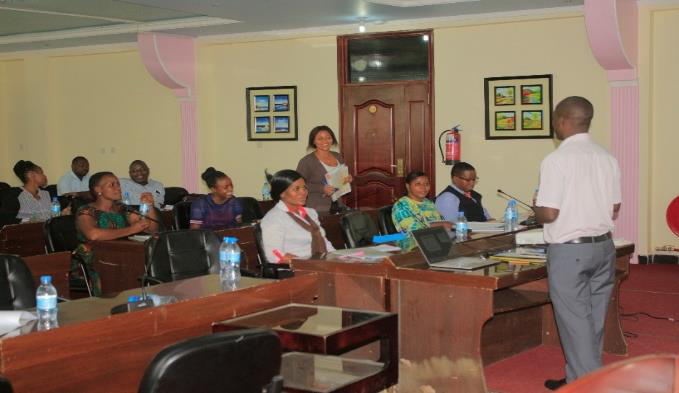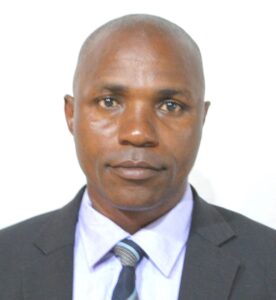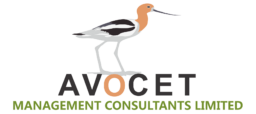Services
We provide a wide range of Services
At Avocet, we pride in our proven capability and experience to deliver professional
consultancy and training services

1. Training
1.1. Standard
a) FSSC 22000 - Food Safety
Today, the food chain faces a lot of complex challenges due to rapid advancements in food technologies and the ever-increasing global food trade. In order to cope with these challenges, you need food control systems which are up to date with the latest developments and aligned with international standards and best practices.
FSSC 22000 is a GFSI-recognized certification scheme for food safety management systems ensuring the provision of safe food, feed, and packaging to the consumer goods industry.
The scheme is based on publicly available standards/technical specifications:
- ISO 22000:2018 – Requirements for any organization in the food chain
- Sector specific prerequisite programs (PRPS) requirements (ISO/TS 220002-x; PAS xyz); and
- FSSC 22000 Additional Requirements
Our in-house training programs, delivered by qualified and experienced personnel, are designed to meet you specific knowledge needs and enable you prepare for this certification.
Enhance your market access and reduce food safety risks by implementing FSSC 22000.

List of Our Training Courses
i) FSSC 22000 Version 6 – Introduction
Course Overview
FSSC 22000 provides a trusted brand assurance platform to the food industry. FSSC 22000 Version 6 was published in April 2023.
The introduction course covers the following topics:
- Introduction to FSSC 22000 version 6
- ISO 22003-1:2022
- FSSC 22000 version 6 additional requirements
- Certification process
Target Audience
The members of the food safety team and those responsible for the implementation of the food safety management system.
Course Objectives
Upon completion of this Course, delegates will be able to:
- Understand the components of FSSC 22000 Version 6
- Understand the additional scheme requirements
- Explain the certification process
- Course Duration
This module runs for 1 day.
Prerequisites
None
ii) FSSC 22000 Version 6 – Implementation Course
- Course Overview
FSSC 22000 provides an independent ISO-based third-party auditing and certification and is recognized by the Global Food Safety Initiative.
The implementation course covers the following topics:
- Introduction to FSSC 22000 version 6
- ISO 22000:2018 food safety management system requirements
- Sector specific PRPs or PAS
- FSSC 22000 version 6 additional requirements
Target Audience
Those responsible for the implementation of the food safety management system and anyone interested in FSSC 22000 version 6
Course Objectives
Upon completion of this Course, delegates will be able to:
- Explain the requirements of FSSC 22000 Version 6
- Develop the necessary documentation to support the implementation of the FSMS
- Champion the implementation of FSSC 22000 in your organizations
Course Duration
This module runs for 2 days
- Prerequisites
Basic knowledge of the elements of FSSC 22000 version 6
iii) FSSC 22000 Version 6 – Internal Auditor Course
Course Overview
The Internal Auditor Course covers the following topics:
- Overview of FSSC 22000 version 6 requirements
- Managing the audit program
- Conducting audit activities
- Generating audit findings
- Reporting audit findings
- Follow up activities
Target Audience
Internal auditors and anyone interested in becoming a food safety management system auditor.
Course Objectives
Upon completion of this Course, delegates will be able to:
- Interpret the requirements of FSSC 22000 in the context of an audit.
- Plan, conduct an effective internal audit and be able to report findings in accordance with ISO 19011
- Apply techniques for collecting and evaluating audit evidence and generating audit finding
Course Duration
This module runs for 2 days.
Prerequisites
Knowledge of FSSC 22000 version 6 requirements
iv) FSSC 22000 Version 6 – Lead Auditor Course
Course Overview
FSSC 22000 version 6 Lead Auditor Course will cover topics:
- Overview of FSSC 22000 version 6 requirements
- Managing the audit program
- Conducting audit activities
- Generating audit findings
- Reporting audit findings
- Follow up activities
Target Audience
Internal auditors and any other person with interest in becoming a lead auditor
Course Objectives
Upon completion of this Course, delegates will be able to:
- Interpret the requirements of FSSC 22000 in the context of an audit.
- Identify applicable statutory and regulatory requirements relevant to the organization’s context
- Apply Process approach and PDCA cycle in auditing
- Plan, conduct an effective internal audit and be able to report findings in accordance with ISO 19011
- Apply techniques for collecting and evaluating audit evidence and generating audit finding
Course Duration
This module runs for 5 days.
Prerequisites
Considerable knowledge of FSSC 22000 version 6 requirements

ISO 22000 – Food Safety
As a food producer, regardless of your size or complexity, you have a responsibility to safeguard the well-being of your consumers by ensuring that your food products are safe.
Implementing a food safety management system will help you identify and control food safety hazards thus contributing to food safety along the food chain.
Our in-house training programs, delivered by qualified and experienced personnel, are designed to meet you specific training needs and enable you implement a robust food safety system.
i) ISO 22000 Implementation Course
- Course Overview
This training module is designed to enable the delegates understand the requirements of ISO 22000:2018 international standard.
The approach used is a practical one where the learner can associate the concepts with the day-to-day operations.
- Target Audience
Those responsible for the implementation of the food safety management system.
- Course Objectives
Upon completion of this Course, delegates will be able to:
- Explain the requirements of a food safety management system based on ISO 22000:2018
- Develop the necessary documentation to support the implementation of the FSMS
- Champion the implementation of ISO 22000 in their organizations
- Course Duration
This module runs for 2 days
- Prerequisites
None
Course Objectives
Upon completion of this Course, delegates will be able to:
- Interpret the requirements of FSSC 22000 in the context of an audit.
- Identify applicable statutory and regulatory requirements relevant to the organization’s context
- Apply Process approach and PDCA cycle in auditing
- Plan, conduct an effective internal audit and be able to report findings in accordance with ISO 19011
- Apply techniques for collecting and evaluating audit evidence and generating audit finding
Course Duration
This module runs for 5 days.
Prerequisites
Considerable knowledge of FSSC 22000 version 6 requirements
Would you like to start a project with us?
Our Team
We pride in our vast experience in provision of consultancy and training services in Quality, Information Security Management Systems, Food Safety, Environmental Management/Impact Assessments, and Occupational Safety and Health.

Japhiter Momanyi
Co-founder
Has over 15 years’ experience in quality and food safety management systems.
LEAD AUDIOR/TRAINER in the following areas:
- Food Safety Management Systems (FSSC 22000, ISO 22000, BRCGS, HACCP),
- Quality Management Systems (ISO 9001)
- Laboratory Management Systems (ISO/IEC 17025)
- Conformity Assessment (ISO/IEC 17020)
Mr. Japhiter Momanyi holds a Degree in Food Science and Technology.
Has worked in Kenya, Tanzania, Uganda, Rwanda, Burundi, Mozambique, Ghana, Cote d’Ivoire, Burkina Faso, Benin, Guinea Bissau, Mali.

Richard Mong’are
Co-founder
HSE Expert
Has 13 years of experience in environmental, health and safety specializing in environmental impact assessments (EIA), environmental auditing (EA), environmental and social impact assessments (ESIA), strategic environmental assessments (SEA), Resettlement Action Plans (RAPs), and occupational safety and health management systems (OSHs).
Mr. Richard Mong’are holds an Msc. Degree in Occupational Safety and Health, BSc. in Soil, Water, and Environmental Engineering and a Diploma in Agricultural Engineering.
Worked in Kenya, Ethiopia, Tanzania and Sierra Leone.
